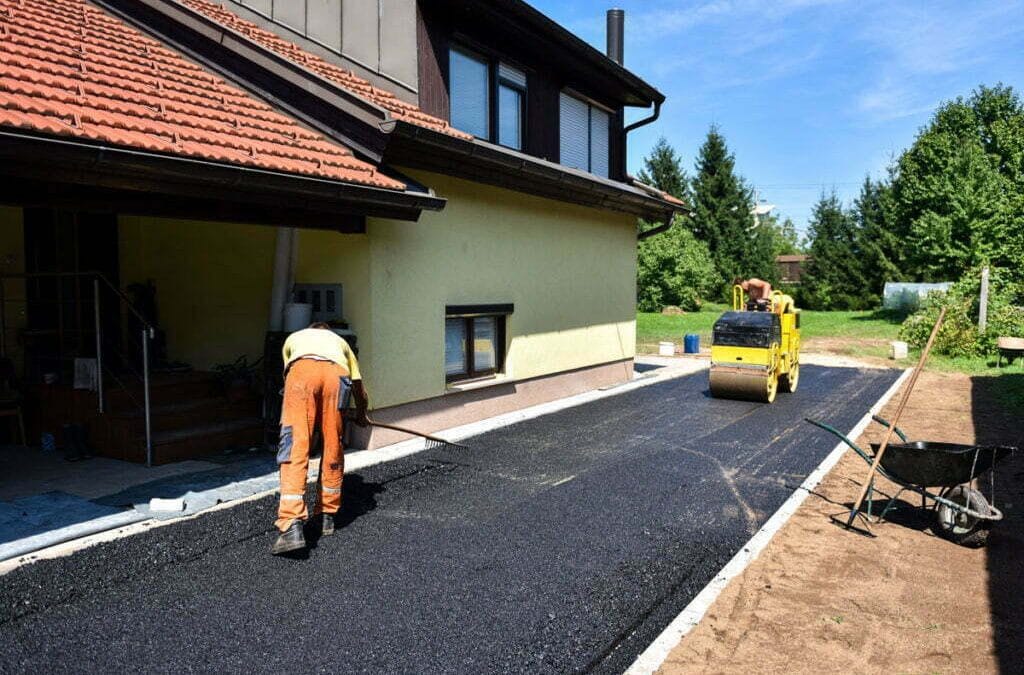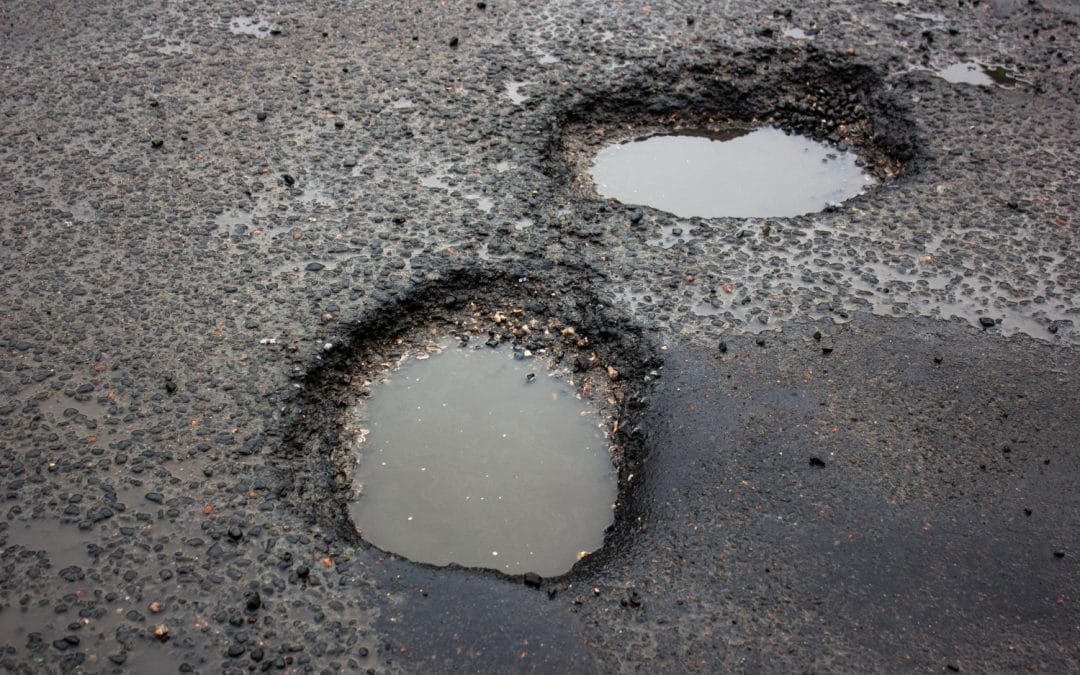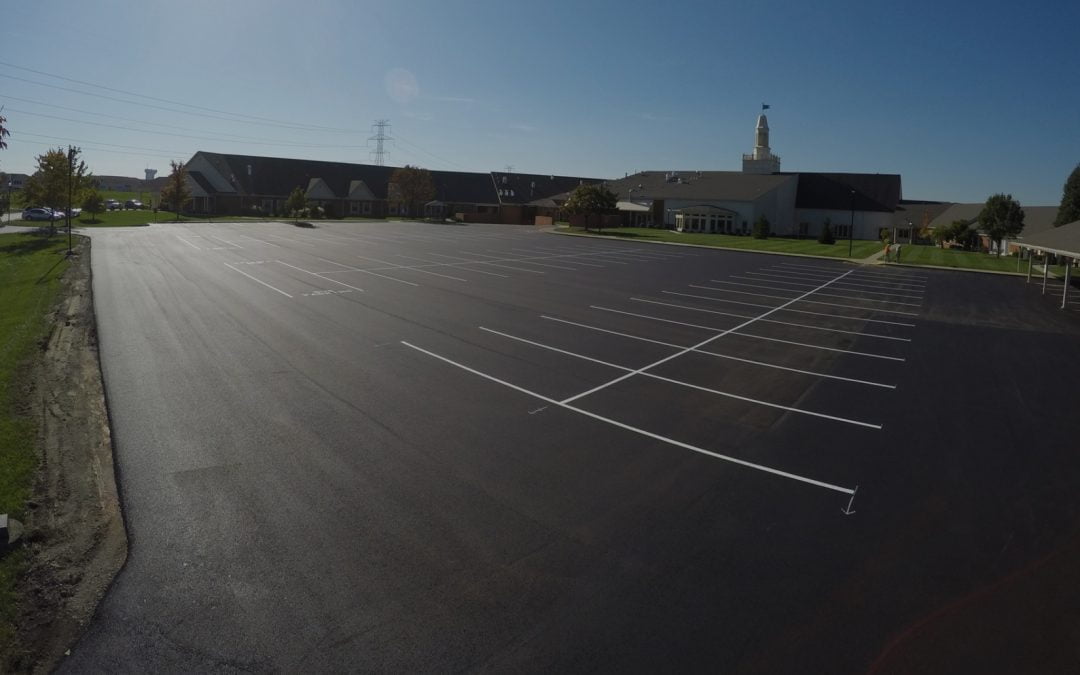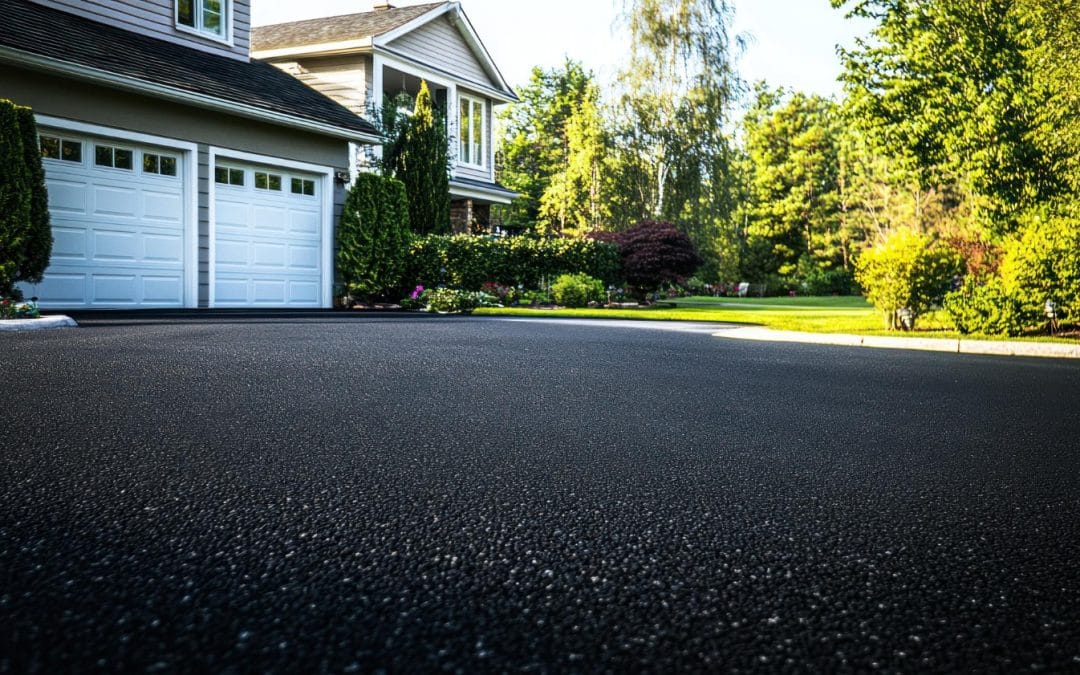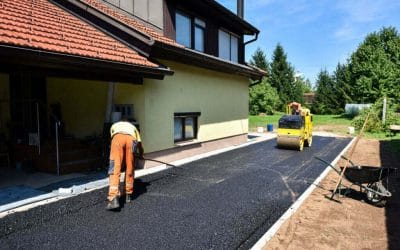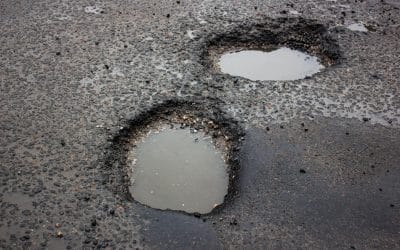Key Takeaways:
- The ingredients in blacktop are the same as asphalt, but the proportion of stone is higher. Also, blacktop must be heated to a temperature of around 300 degrees Fahrenheit.
- Blacktop is less durable than asphalt and more susceptible to weather and traffic damage.
- Blacktop also stains more easily than asphalt.
- Blacktop has a softer surface than asphalt, which means it does not stand up as well to heavy traffic.
- Suppose you are considering paving your driveway or another surface on your property. In that case, you will need to decide whether blacktop or asphalt is suitable for the job.
Are you thinking about resurfacing your driveway or parking lot? Paving it is a great idea to create a smooth and level surface. When paving your driveway or parking lot, you may hear the terms “blacktop” and “asphalt” used interchangeably. But are they the same thing?
Both materials are used for paving, but they have some key distinctions. American Paving will explore the similarities and differences between blacktop and asphalt to help you make an informed decision. So read on to know whether Blacktop or asphalt paving is perfect for your driveway or parking lot.
Similarities Between Blacktop and Asphalt
People often get them wrong because blacktop and asphalt share some fundamental similarities. They are both made from bitumen and gravel, are dark in color, have a smooth texture, and require little to no maintenance.
It may be difficult for a layperson to distinguish between blacktop and asphalt. But if you look closer, there are some subtle yet significant differences between the two.
Let’s first consider how both substances are made.
How is Blacktop Made?
As discussed above, both paving materials are made from the same content: Bitumen and gravel. The ingredients in blacktop are the same as asphalt, but the proportion of stone is higher. Also, blacktop must be heated to a temperature of around 300 degrees Fahrenheit.
How is Asphalt Made?
While making asphalt, bitumen is greater than stone content. Other than that, it is heated below 150 degrees Celsius.
Paving Procedure
How is Asphalt Paving Done?
Asphalt paving is a four-step process that begins with milling or removing the top layer of existing pavement to provide a clean surface for asphalt to be laid.
Once the area is milled, a primer is applied to help the new asphalt adhere to the existing surface.
After the primer has had time to dry, hot asphalt mix is placed on the road and compacted with large rollers to create a smooth surface.
The final step is to apply a sealcoat over the newly paved surface.
How is Blacktop Paving Done?
Blacktop paving is done in pretty much the same way as asphalt paving. The main difference is in the composition of the blacktop mix.
Blacktop is made with a higher percentage of tar than asphalt, which makes it durable and weather-resistant. The paving process is the same, but the blacktop needs to be laid in warmer weather so the tar can adequately bind to the aggregate.
Application
Where is Blacktop Paving Applied?
People usually prefer a blacktop because it is a more user-friendly surface. It tends to last long and can be repaired quickly, which factors into its reliability.
Additionally, the extended life span becomes another positive quality since the blacktop is mainly used for less trafficked areas like parking lots.
Blacktop is perfect for residential driveways as it has less traffic than commercial areas.

Where is Asphalt Paving Applied?
Asphalt paving, compared to blacktop, is more durable, which is why it’s used for high-traffic areas such as highways and busy streets. It is used for commercial parking lots and driveways that receive high traffic volumes. To ensure longevity, you can increase the asphalt thickness if your parking lot receives heavy-duty vehicles.
Advantages of Blacktop Over Asphalt
1. Less Expensive
Because blacktop is not as durable as asphalt, it is also less expensive. It makes it a more attractive paving option for homeowners and small business owners.
2. Easier to Install
Blacktop is also easier to install than asphalt because it does not require heavy equipment or a large crew to complete the job.
3. Quicker to Dry
Blacktop dries quickly, so you can typically use your driveway or parking lot within a day or two after it has been paved.
The Drawbacks of Blacktop
1. Shorter Lifespan
The biggest drawback of blacktop is that it simply does not last as long as asphalt. A blacktop driveway or parking lot will last for less than that asphalt pavement. According to experts, asphalt pavement can last about 15-30 years.
2. More Susceptible to Damage
Because blacktop is not as strong as asphalt, it is also more susceptible to damage. Cracks and potholes can form much more quickly on blacktop than on asphalt.
3. Stains More Easily
Blacktop is also more likely to stain than asphalt. Oil stains and tire marks are tough to remove from blacktop surfaces.
4. Softer Surface
Blacktop has a softer surface than asphalt, which is not ideal for high-traffic areas. If you have a lot of foot or vehicle traffic, you will likely need to repair or replace your blacktop more often than you would need with asphalt.
Related: Understanding Asphalt Paving: Let’s Talk Types, Uses, And More
Conclusion
So, what’s the verdict? The answer depends on several factors. Asphalt is the way to go if you need a durable, long-lasting surface that can withstand much traffic.
However, blacktop may be the better option if you work with a limited budget. Whichever material you choose, be sure to work with an experienced paving contractor to get the best results.
Professional Paving Contractors in Monroe, NC
Now that you know the difference between blacktop and asphalt, you may wonder where to turn for professional paving services. American Paving is a full-service paving company serving Monroe, NC, and the surrounding area for more than 60 years.
We specialize in commercial and residential paving projects and would be happy to help you with your next project. Contact us today to learn more about our services or to get a free estimate.


